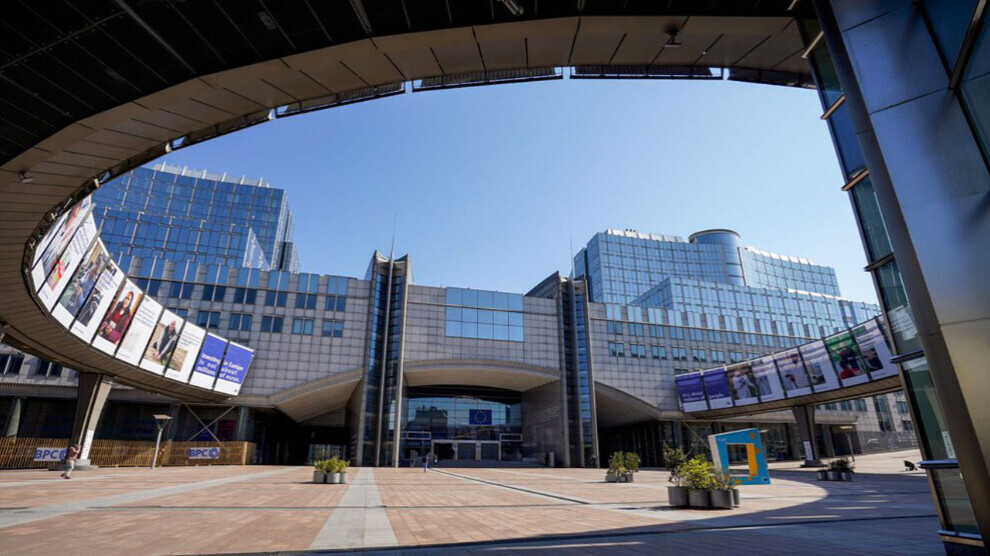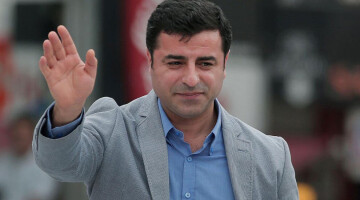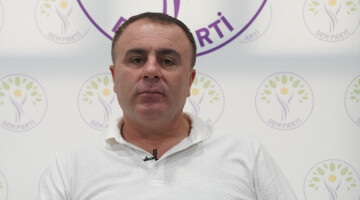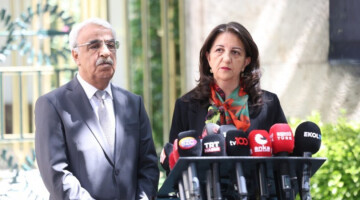69 Members of the European Parliament (MEPs) addressed a letter to Charles Michel, President of the European Council Ursula von der Leyen, President of the European Commission Josep Borrell, High Representative/ Vice- President of the European Commission regarding the latest developments in Turkey.
The letter has referred to a series of issues, including legal actions against the Peoples’ Democratic Party (HDP), Turkey’s withdrawal from the Istanbul Convention on preventing and combating violence against women, and dismissal of the head of the Central Bank, Naci Ağbal.
The letter of the MEPs reads as follows:
“In the past days, we have witnessed dramatic events, which have brought developments in Turkey to a head.
First, the immunity of the famous human rights activist and HDP MP Ömer Faruk Gergerlioğlu was lifted. He was then arrested in a degrading manner in the Parliament on his way to the Morning Prayer. On the same day that Gergerlioğlu's immunity was lifted, Turkey's top public prosecutor initiated proceedings to ban the country's second largest opposition party (HDP).
Another procedure initiated at the same time, shall deprive the right of 678 members of the HDP to engage in any political activity for at least five years. Among those affected are Selahattin Demirtas and many other well-known figures in the HDP leadership.
At the same time, opposition members were again arrested in several cities - so Öztürk Türkdoğan, the co-chair of the human rights organisation IHD. On Saturday night (20.03.2021), the Turkish President Erdogan withdrew with immediate effect from the Istanbul Convention on preventing and combating violence against women. In doing so, he bypassed the Turkish parliament, which unanimously adopted the convention in 2011.
That same night, President Erdogan dismissed the head of the Central Bank, Naci Ağbal, after just four months in office. The latter had raised the key interest rate by 2 points to 19 per cent two days earlier. This means that President Erdogan has changed the head of the Central Bank four times in 20 months. The Turkish Lira is currently in free fall, trading on the Istanbul stock exchange had to be suspended. The country's financial system is under great political pressure, and business circles fear that drastic measures such as capital controls could follow.
These events of the last few days give rise to fears that Turkey, and in particular the country's democratic opposition, will face drastic deterioration of the current situation. This poses new challenges for the EU and the European Parliament. In his repressive action against the opposition, the Turkish President has so far relied on the fact that he does not have to fear any significant resistance from the USA, but above all from the European Union. His confident statements following the video conference with Commission President von der Leyen and Council President Michel makes that very clear.
Obviously, President Erdogan and his coalition of ultra-nationalist and ultra-religious forces see the EU's willingness to make compromises on foreign policy as a carte blanche to crush the country's opposition. The current wave of repression and attacks against the democratic opposition do not coincidentally follow the appeasing announcements of "reforms" by the government in Ankara.
We Members of the European Parliament share the conviction that the upcoming EU summit faces a historic task. We call on the participants of the summit to finally end the appeasement policy towards the Erdogan regime. The European Union should take sides for women's rights, for freedom of political activity, for freedom of expression, for human rights and for democracy towards the Turkish government, which is on its way to become a dictatorship. If the upcoming EU summit does not live up to this historic responsibility, we fear great damage to democracy both in Turkey and in the region.”












